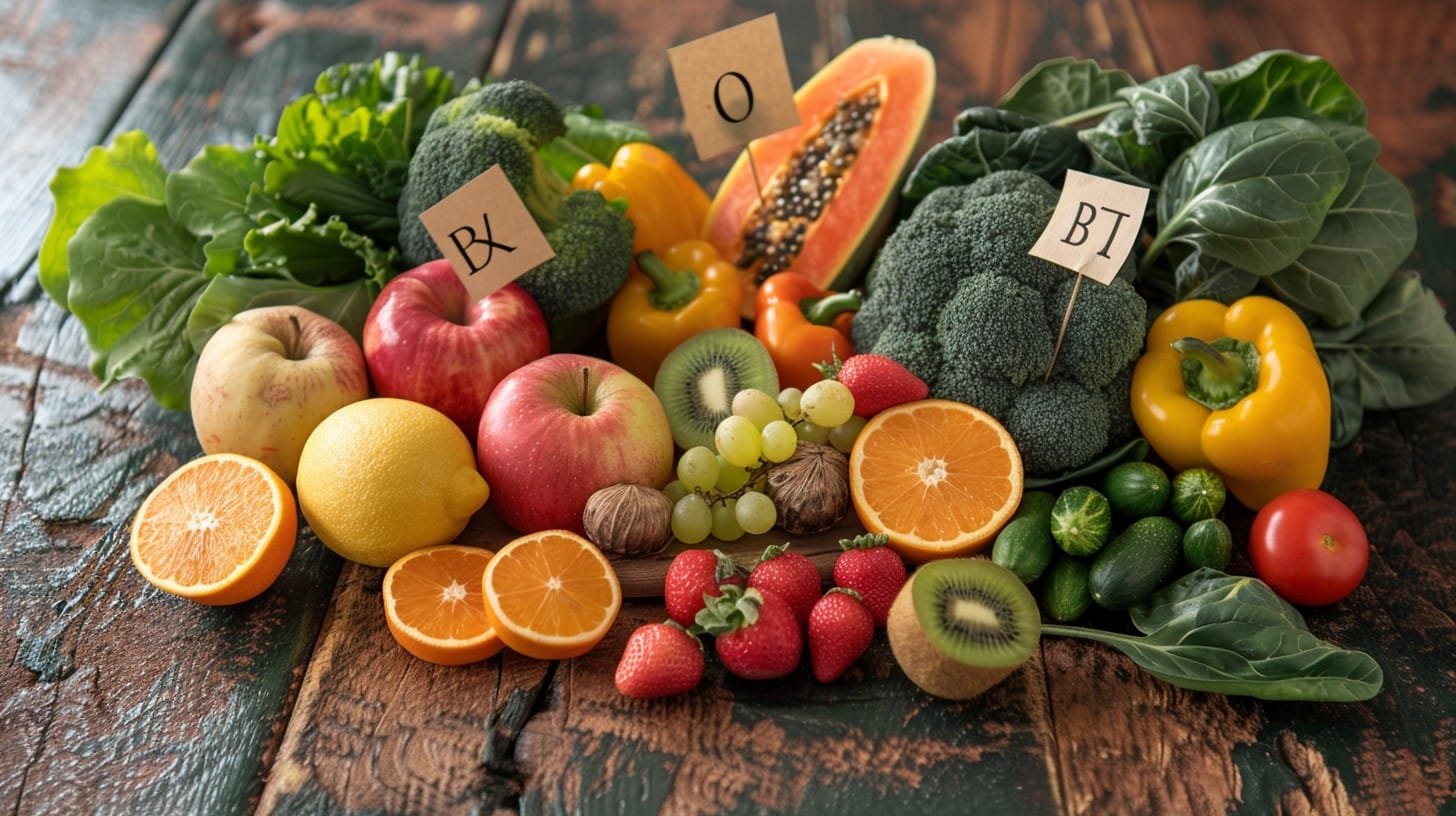A balanced diet plays a crucial role in maintaining health and vitality at any age, but for seniors, it’s especially essential. As we age, our bodies go through changes that can affect nutrition needs, metabolism, and overall health. Crafting a balanced diet for seniors means paying close attention to nutrients, portion sizes, and food choices that support energy, mobility, and cognitive function. In this guide, we’ll dive into what seniors need for a nutritious, well-rounded diet, discuss important nutrients, and offer practical meal-planning tips.

Understanding the Nutritional Needs of Seniors
Aging brings unique nutritional requirements due to changes in metabolism, muscle mass, bone density, and organ function. To meet these needs, seniors should focus on diets that:
- Maintain Muscle Mass and Strength: Muscle mass tends to decrease with age, which can impact strength and mobility. Seniors should prioritize protein-rich foods to help maintain muscle and support strength.
- Support Bone Health: As bone density can decline with age, increasing the risk of osteoporosis, seniors should consume adequate calcium and vitamin D.
- Promote Heart Health: A balanced intake of omega-3 fatty acids, fiber, and antioxidants supports cardiovascular health, which is particularly important for seniors.
- Enhance Cognitive Function: Nutrients like B vitamins, omega-3s, and antioxidants play a role in cognitive health, which can support memory and brain function.
- Aid Digestive Health: Fiber-rich foods help keep the digestive system functioning smoothly, which is often a concern as digestion can slow with age.
Key Nutrients for a Balanced Diet in Seniors
Ensuring a balanced diet starts with incorporating the following key nutrients:
Protein
- Why It Matters: Protein helps to preserve muscle mass, supports immune function, and aids in cell repair.
- Sources: Lean meats, poultry, fish, eggs, legumes, nuts, and low-fat dairy. For vegetarians, tofu and other soy-based products are excellent protein sources.
- Suggested Intake: Aim for 1-1.2 grams of protein per kilogram of body weight per day, depending on individual activity levels and health.
Calcium and Vitamin D
- Why They Matter: These nutrients work together to maintain bone health and reduce the risk of fractures.
- Sources: Dairy products (milk, yogurt, cheese), fortified plant-based milks, leafy greens (like kale and broccoli), and fatty fish (such as salmon).
- Suggested Intake: Around 1,200 mg of calcium and 600–800 IU of vitamin D daily.
Omega-3 Fatty Acids
- Why They Matter: Omega-3s support heart health, reduce inflammation, and may help with cognitive health.
- Sources: Fatty fish (such as salmon, trout, and sardines), flaxseeds, chia seeds, walnuts, and fish oil supplements.
- Suggested Intake: At least two servings of fatty fish per week, or consider a fish oil supplement if fish is not preferred.
B Vitamins (Especially B6, B12, and Folate)
- Why They Matter: B vitamins help with energy production, nerve function, and red blood cell formation. Vitamin B12 is particularly essential, as absorption decreases with age.
- Sources: Meat, fish, eggs, dairy, leafy greens, beans, and fortified cereals.
- Suggested Intake: Approximately 2.4 micrograms of B12 daily, either through food sources or a supplement, if needed.
Fiber
- Why It Matters: Fiber aids digestion, supports heart health, and helps regulate blood sugar.
- Sources: Whole grains, fruits, vegetables, beans, and legumes.
- Suggested Intake: Aim for 25–30 grams per day, ideally from whole foods.
Antioxidants (Vitamins C and E)
- Why They Matter: Antioxidants help protect cells from damage and may reduce the risk of chronic illnesses.
- Sources: Citrus fruits, berries, nuts, seeds, and colorful vegetables (like peppers and spinach).
- Suggested Intake: Aim for a varied intake of antioxidant-rich foods daily.
Practical Tips for Meal Planning and Preparation
Creating balanced meals for seniors doesn’t have to be complicated. Here are some simple strategies for planning nutritious meals that cover all essential food groups:
Prioritize Fresh, Whole Foods
- Whole foods—such as fruits, vegetables, whole grains, and lean proteins—provide the most nutritional value. Try to limit processed foods, which can be high in sodium, unhealthy fats, and added sugars.
Choose Healthy Fats
- Opt for unsaturated fats found in nuts, seeds, avocados, and olive oil, which support heart health without adding excessive calories. Avoid trans fats and limit saturated fats.
Control Portion Sizes
- Since seniors may have lower energy needs, portion control is important. Try using smaller plates to avoid overeating and encourage balanced portions of proteins, vegetables, and grains.
Include Snacks to Meet Nutritional Goals
- Healthy snacks can help seniors meet their daily requirements. Consider low-sugar yogurt, a handful of nuts, or fresh fruit as snacks to maintain energy levels between meals.
Plan for Hydration
- Dehydration is common among seniors, so it’s important to encourage regular water intake. Herbal teas, infused water, and soups can contribute to hydration without adding extra calories.
Sample Meal Plan for Seniors
Here’s a sample meal plan for a day, designed to provide balanced nutrition while being easy to prepare and enjoy:
Breakfast
- Oatmeal with chia seeds, topped with fresh berries and a sprinkle of nuts.
- One hard-boiled egg or Greek yogurt for added protein.
Lunch
- Grilled chicken or chickpea salad with mixed greens, cherry tomatoes, cucumbers, and a light olive oil dressing.
- A whole-grain roll or quinoa on the side for fiber and complex carbs.
Snack
- A small apple with a handful of almonds or a slice of whole-grain toast with avocado.
Dinner
- Baked salmon with a side of steamed broccoli and sweet potato.
- Mixed green salad with olive oil and vinegar dressing.
Evening Snack (Optional)
- Cottage cheese with sliced peaches or a handful of walnuts for a light, protein-rich snack before bed.
Additional Tips to Keep in Mind
- Consult with Healthcare Providers: Seniors should always discuss dietary changes with a healthcare provider, particularly if they have health conditions or are taking medications that may interact with certain nutrients.
- Incorporate Physical Activity: Even moderate activity, like walking, can improve appetite and help maintain muscle mass.
- Consider Supplements if Needed: If seniors struggle to meet their nutrient requirements through food alone, a multivitamin or specific supplements (like vitamin D or B12) may be recommended by a doctor.
Conclusion
Creating a balanced diet for seniors involves focusing on nutrient-rich foods that support overall health, energy, and vitality. With a thoughtful approach to meal planning and a focus on key nutrients like protein, calcium, and fiber, seniors can enjoy meals that are not only delicious but also packed with health benefits. Supporting seniors with a balanced diet is a meaningful way to promote a better quality of life, making nutrition an integral part of healthy aging.
Read More: Healthy Snack Ideas for Seniors








